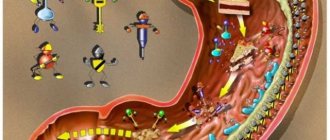The debate about the relationship between smoking and excess weight has been going on for years. Doctors and ordinary people provide scientifically based arguments and real-life examples. The latter are especially controversial: someone, addicted to tobacco, begins to lose weight sharply, while others, on the contrary, find that after a couple of weeks they gain several kilograms. Why is this issue so ambiguous?
Before describing the connection between smoking and weight, we’ll immediately tell you why the consequences of this bad habit have such an ambiguous effect on your figure. The result depends on various factors:
- individual characteristics of the body: some have a fast metabolism, others have a slow one;
- lifestyle: someone smokes, but at the same time moves a lot and even plays sports, while others suffer from physical inactivity;
- type of cigarettes: some prefer light ones, with a minimum concentration of nicotine, which means its negative impact on health will not be so significant, others smoke strong ones;
- number of cigarettes smoked per day.
So there is nothing surprising in the fact that a person smokes, but at the same time has no visible (!) health problems and excess weight. Perhaps he has such a constitution by nature, he spends a lot of time on his feet and his norm is 1-2 light cigarettes a day. Another has both overweight parents, he has a sedentary job, and he doesn’t notice how his pack goes away in a day. Therefore, when such examples are given to you, always be interested in additional factors before drawing conclusions about whether smoking makes you lose weight or gain weight.
Sad statistics. Every fifth person in the world dies from a disease caused by smoking.
How smoking affects a person's weight
It is known that the influence of tobacco is akin to drug addiction, since it stimulates the replacement of one pleasure center with another. According to the principles of psychology, the pleasure obtained from food replaces the sensations acquired through cigarettes. Therefore, smokers often take a smoke break instead of eating, which helps reduce body weight. Smoking and losing weight are closely related, but it’s worth considering that extra pounds are no worse than developing serious diseases.
Does smoking affect weight and health from a physiological point of view? When nicotine enters the body, intoxication occurs, which is similar to mild food poisoning. At this time, energy resources will be used to protect against poison and neutralize it. Do smoking make you lose weight and why? The calories received from digesting food are spent on eliminating nicotine, so there is no energy left to absorb nutrients, or less of the beneficial elements are absorbed from foods. Due to intoxication, appetite is lost, so smokers often lose weight.
Why do you gain weight when you quit smoking?
If you quit smoking, nicotine stops acting on the stomach and hunger center, and on the body as a whole. The processes of dulling hunger do not occur in the brain, so a person’s appetite increases and the amount of food eaten increases. The mucous membrane of the stomach begins to function normally, because of this, food is absorbed in it better and in larger volumes, which causes weight gain. Restoring the sense of smell and taste also helps increase appetite.
Smokers have to replace cigarettes with seeds or sweets in order to somehow eat away the stress. The craving for tobacco encourages frequent snacking, so you will have to gain weight. Do cigarettes affect a smoker's weight? Yes, but when the body gets rid of toxic chemicals, the metabolism will function correctly and the person will gain weight. After normalization of metabolism, body weight will be what it should be.
Why does smoking make you lose weight?
More than 90% of those who have this bad habit noticed that their body weight actually decreased. From a scientific point of view, tobacco makes you lose weight. Does smoking affect weight without causing much harm to the body? Here are some studies on the effects of tobacco:
- Nicotine causes a false feeling of fullness because it depresses the central nervous system. This helps reduce the amount of food and calories consumed, as a result of which the body has to use the available nutrients, which leads to weight loss.
- Tobacco contributes to the occurrence of stomach ulcers and interferes with the normal functioning of the digestive organs, therefore the rate of absorption of nutrients is reduced. Appetite decreases, and along with it the number of calories received. The body is weakened because it practically does not receive vitamins, and the functioning of the immune system is also disrupted.
- How to cure toenail fungus at home
- Separate meals for weight loss: menu and food table
- How to make honey cake for cough
Why does smoking make you gain weight?
There are people who, in contrast to all of the above, manage to gain weight while smoking. There are also explanations for this:
- nicotine is a killer of oxygen, the main fat burner;
- deterioration of digestion in some cases significantly slows down metabolism and lipolysis;
- Nicotine does not have a calming effect on everyone; it often excites and leads to a state of irritability, which provokes additional synthesis of cortisol, a hormone that causes excess weight gain.
So you can safely connect smoking and belly fat: as studies have shown, it is in this part of the body that adipocytes accumulate under the influence of nicotine. Women who abuse this bad habit are especially blurry in the waist and sides. In men, this is fraught with other consequences: their excess weight is distributed evenly, as fat replaces muscle mass. Therefore, you will have to forget about the athletic figure. Remember: the gym and cigarettes do not mix.
Interesting fact. Until the 17th century, there was no word for “smoking.” This bad habit was called more succinctly - dry drunkenness.
Is it possible to gain weight if you quit smoking?
When you quit this habit, a reaction to the lack of nicotine will occur, which can be called stress. Smoking and body weight are linked. Food will begin to be better absorbed, the person will receive more calories, and therefore gain weight. Former smokers do not gain more than five kilograms. In addition, after about six months, body weight will return to normal. After quitting smoking, gaining kilograms is good for health and restoring the coordinated functioning of the body.
But let's look at what are the consequences of such weight loss?
Many dreamers of losing weight (especially women, most likely even teenage girls) think that in this way they will protect themselves from obesity. However, this is fantasy. Despite the fact that the weight will indeed decrease, you will suffer damage to the digestive organs, brain, nervous system, and so on. The arrows on the scales suit you, fact. What about health indicators? Aiming for zero. Are you ready to become such a zero?
So think about it, do you need to get rid of a couple of kilograms in exchange for, for example, stomach cancer? Not a very pleasant alternative, right? It’s better to be an appetizing crumpet than a stale cracker stuffed with carcinogens.
When smoking, poisons remain in the mouth, then enter the stomach with saliva or food. First, a stomach or duodenal ulcer occurs, and then cancer. The worst thing is that in the initial stages, when cancer can be cured, a person often does not even suspect its existence, since it does not manifest itself. But when pain appears, it is already too late to do anything... People with ulcers are often prescribed some kind of “Diet No. 3”. How can you not lose weight? On empty jelly and fresh chicken!
What happens to your brain? As you probably know, the brain receives all the information about the body and processes it. This is a complex process in which nicotine causes disruption.
Therefore, a person who smokes has a surge of energy, but this is an imaginary “All is well in the Danish kingdom.” Tobacco is a drug, as mentioned above. Nicotine causes a feeling of euphoria. This is why you want to smoke more and more. Already fifteen minutes after the first puff, the smoker feels joy. But, as proven by experts, nicotine is quickly eliminated by the body through urine, in about an hour. It is then that the smoker again has the desire to “puff”.
Did you know that when you smoke, about four thousand different toxins settle in your mouth?? They are the ones who, penetrating into your body, disrupt the functioning of absolutely all organs! After the first puff, the smoke passes through you and leaves brown stains on your teeth. And gases such as formaldehyde and ammonia excite the nervous system.
Getting into the trachea, smoke, carrying the same toxins, settles on the “cilia” of the bronchopulmonary system, complicating its work. But these cilia are designed to cleanse the lungs of all harmful foreign particles and liquids. Then the entire “periodic table” enters the blood and spreads throughout the body, reaching the adrenal glands. This is why there is an unprecedented surge of energy. And the released adrenaline increases the heart rate, resulting in a stroke over time. Scientists say that cigarette addiction can be compared to heroin addiction.
How to gain weight if you smoke
Nicotine reduces appetite and prevents food from being completely absorbed. The cigarette is the main enemy that prevents you from gaining weight. At first, the body spends most of its resources to protect itself from poisoning by chemical compounds, and over time, intoxication processes intensify in the body, which prevent the absorption of nutrients and even the deposition of fats. Only if you quit smoking can you gain some weight and restore the normal functioning of your internal organs. To gain weight, you need to give up tobacco.
How do cigarettes affect muscle mass?
Scientists have proven that smoking reduces the number of small blood vessels that deliver oxygen and nutrients to the leg muscles.
A study conducted by the University of California, San Diego, in collaboration with the Federal University of Rio de Janeiro and the University of Kochi, examined the effects of smoking on muscles. For 8 weeks, subjects either inhaled tobacco smoke or received intramuscular injections of a solution with smoke bubbles.
Photo: istockphoto.com
The results revealed that cigarette smoke actually damages muscles by reducing the number of blood vessels in the leg muscles, thereby reducing the amount of oxygen and nutrients they can receive. This, in turn, can negatively impact your metabolism and activity levels.
What to eat to pump up? 10 Simple Foods to Gain Muscle Mass
How to quit smoking correctly?
Introducing a strict diet at the same time as quitting smoking is a waste of time. Combining two difficult tasks usually leads to failure. So it’s better to plan everything in advance: for example, change your food preferences a few weeks before giving up cigarettes. If you have already quit smoking, then simply adjust your diet towards larger, but less calorie meals. Replace sweet tea and coffee with plain water and drink at least 2 liters of fluid per day. Eat more, but with benefit. To do this, it is enough to replace fast carbohydrates (chocolate, cookies and other sweets) with complex ones (cereals), sugar with honey or a sweetener, and change the fat content of dairy, fermented milk, meat and fish products consumed. Also, eat vegetables. If your hands involuntarily reach for food, eat carrots instead of chocolate, some prunes or dates instead of sweets, chew seeds instead of candy. It's not that difficult, you just need to do a little work for yourself (washing and peeling a carrot is more difficult than unwrapping a chocolate bar).
And remember that what you eat should be eaten slowly, chewing well, and not hurriedly. Try to develop an optimal nutrition plan for yourself - once a day. And the more often you eat, the smaller your portions should be. The diet must include vegetables and fresh herbs in any quantity, mineral water and unsweetened fruits - green apples, maybe grapefruits. By the way, mineral water with a high content of magnesium is useful for relieving stress and good sleep.
If you can't live without candy, always carry sugar-free candy with vitamins and herbal extracts. They can be bought at any pharmacy. To prevent depression caused by a lack of nicotine, take vitamin C - it helps fight nicotine addiction.
Go to the gym or do aerobics at home. If you feel very nervous, try yoga or Pilates. Be sure to walk in the fresh air, preferably an hour and a half before bed. Running, swimming and exercise bikes will help you burn extra calories in a timely manner. And don’t keep yourself in a black body, let your body eat as much as it wants, just watch the quality of the food you eat.
This lifestyle, which is unusual for many people, will have to be maintained for a long time, two years - that is how long the risk of gaining excess weight remains after quitting smoking. It is important that these two years do not turn into continuous suffering. Therefore, you need to choose both food and sports to your liking. In addition, try to perceive the transition to a healthy lifestyle as a rebirth, a new step towards a good life. After a few weeks, you will develop the habit of eating healthy. It is quite possible that you will like it so much that you will no longer want to give up this lifestyle. And it won’t hurt all members of your family to switch to high-quality nutrition and reasonable physical activity.
Features of the health of a smoker-athlete
Of course, it is difficult to judge all active athletes, but it is worth providing some assistance to those who are both involved in bodybuilding and continue to smoke. Let's start with well-known facts. This information does not have much effect on convincing the most heavy smokers, because the full range of harm from actively consumed nicotine does not occur immediately and clearly, but in a fairly distant future.
Does smoking affect muscle growth? Do young people even think about what they will look like in a coffin in their old age? What will happen to their lungs by this time, because this organ begins to be the first to collapse over time with constant exposure to tobacco smoke. Showing the lungs of someone who has swallowed cigarette smoke all their life can be terrifying.
The appearance of the lungs of even a non-heavy smoker is quite different from the lungs of a person who does not suffer from this infectious habit. In most cases, it is bluish in color, completely covered with black dots. When these points are opened, you can see a small drop of an almost black substance consisting of tar and resin. They take an incredibly long time to leave the body. It will take years for this dirt to completely leave the lungs after quitting smoking.
Now it is worth considering the direct consequence of the above constant lack of oxygen. If you carefully study smoking and gaining muscle mass, you will understand that oxygen is actively involved in the metabolic process. The more he participates before/after training, the higher the likelihood of increasing muscle volume.
Thus, active smoking and muscle growth, especially for a “straight” person, are incompatible processes. Accordingly, time for training and money for purchasing a gym membership are wasted. If you have such knowledge, you can independently answer whether smoking affects muscle growth.
In addition to the obvious harm, which is clearly manifested and clearly visible, there are all kinds of hidden harm from smoking cigarettes. Various researchers have conducted many experiments demonstrating a decrease in the hormone testosterone in smokers. Moreover, this decrease is by no means a joke. When figuring out how cigarettes affect muscles, you need to remember that testosterone is responsible for the process of developing new muscle tissue. The more volume the body produces, the more prominent the biceps will look over time during training.
What happens to active smokers? Again, bad luck along with wasted time working on machines and dragging the barbell. The body has nothing to help the muscles so that enough stimulating substances are produced during training. Therefore, smoking and muscles are incompatible concepts. The only solution for an athlete who smokes is to completely stop using cigarettes. If this is not convincing evidence of whether smoking affects muscle growth, then let's move on.
The first and main reason for quitting smoking is the claim that people who suddenly quit smoking gain excess weight too quickly. This problem especially affects women and men under 30 years of age.
How does smoking actually affect the body? Nicotine and tobacco smoke, entering the body, literally poison it. Nicotine is perceived as harmful bacteria. And the body immediately directs all its forces to its destruction and elimination. Therefore, all its forces, and especially extra calories, begin to affect tobacco smoke. Thus, many useful calories are not stored, but excreted. Due to this, a person can maintain the same weight for a long time.
Smoking prevents the body from gaining weight for several reasons:
- Calories are removed from it along with nicotine.
- Smoking reduces appetite.
- Nicotine contributes to intoxication of the body.
- Nicotine is a kind of drug that can satisfy some physiological needs of a person, thereby replacing the need for food.
- Tobacco smoke raises blood glucose levels. This glucose is perceived by the body as glucose obtained from food.
- Smoking speeds up metabolic processes. All useful substances, without having time to be absorbed, quickly burn and are excreted from the body.
How to quit smoking correctly. Why smoking inhibits weight gain.
As we all know, smoking causes serious damage to our body. Recently, more and more people are realizing this and giving up their bad habit. But the trouble is, many, after getting rid of nicotine addiction, begin to slowly but inevitably gain weight. This problem especially often concerns women, because it is the female body that is most prone to accumulating fat mass.
How to quit smoking. 10 tips to help you quit smoking
According to WHO statistics, there are about 1.1 billion smokers in the world. And Russia is one of the five countries where the most active smokers live - each person smokes more than 2,690 cigarettes per year.
The Federal Agency of the US Department of Health published an article. We share its translation.
“Most smokers would like to quit, but they also know how difficult it is... and that it may take several attempts to succeed. Here are some tips to help you quit smoking easier:
1. Find your reason to quit smoking
To motivate yourself, find a compelling reason. Perhaps you want to protect your family from secondhand smoke. Or reduce your chances of getting cancer, heart disease or other serious illnesses. Find a reason that is strong enough to outweigh the urge to smoke.
2. Set a date
When you decide to quit, set a “completion date” for the next month. Most smokers have tried to quit before, and people often find it unpleasant to remember past attempts. Think of them as steps on the path to success. Try to understand what worked and didn't work last time, take this into account in the future.
3. Medicines can help
Using nicotine replacements (such as nicotine gum or nicotine patches) or other FDA-approved smoking cessation medications may help reduce withdrawal symptoms and increase the chances that you will quit smoking.
Ask your doctor about which option is best for you. Cigarettes contain nicotine, which is addictive. Almost all smokers who quit experience nicotine withdrawal syndrome. Knowing this will help you cope with withdrawal symptoms, such as low mood and an irresistible urge to smoke.
4. Don't quit smoking alone
Tell your friends and family that you are trying to quit smoking and get their support. Contact the free support service for those who are trying to quit smoking (in Russia - the All-Russian telephone line for help in quitting tobacco consumption, 8-800-200-0-200 - note from Yandex.Health), visit special websites for smokers. Install apps on your smartphone for those who plan to quit smoking.
5. Be prepared for challenges
The urge to smoke does not last long - usually from 3 to 5 minutes, but these moments can be felt very strongly. Before you quit smoking, think about ways to keep yourself busy. You can exercise to relieve stress, listen to your favorite music, chat with friends, treat yourself to a massage, or take up a hobby. Try to avoid stressful situations during the first few weeks after quitting smoking.
6. Clean your home
Before you smoke your last cigarette, remove all triggers or things that remind you of smoking. For example, throw away all ashtrays and lighters. Wash any clothes that smell like smoke, clean carpets, curtains and upholstery. If you smoked in your car, clean that too. It's best not to see or smell anything that reminds you of smoking.
7. Move more
Research suggests that physical activity may help relieve some withdrawal symptoms. When you want to reach for a cigarette, get moving—try a yoga class or put on some running shoes. And you can burn calories!
8. Quitting smoking will save money
Besides all the health benefits, what's also important is the savings you'll save. There are online calculators that can help you figure out how much you'll save.
9. It's never too late to quit
Once you stop smoking, your health will immediately begin to improve. Just 20 minutes after quitting smoking, your heart rate returns to normal. Within 12 hours, the level of carbon monoxide in the blood will also return to normal. In just 2-3 months, your risk of having a heart attack will begin to decrease.
As a result, you will significantly reduce your risk of cancer and other serious diseases. Although it is best to quit smoking as early as possible, quitting smoking at any age will improve the length and quality of your life.
10. Try again
Most people make several attempts before giving up cigarettes for good. If you don't succeed, don't be discouraged. Instead, think about what led to your relapse. Use it as an opportunity to improve your chances of success in the future.
Think about what worked for you in previous attempts and what you will do differently next time. First of all, don't give up.
Remember, what you decided to quit is already good news!
More than half of all adult smokers have quit smoking, and you can too. Millions of people have learned to live without cigarettes. Quitting smoking is an important step you can take to protect your health and the health of your family.”
Lifestyle change
Weight and smoking are interconnected. When a person quits smoking, his body begins to work normally - this contributes to the accumulation of extra pounds and makes it difficult to lose weight. People who have smoked all their lives will experience sudden weight gain.
The psychological factor influences. It is not easy for a person to give up a cigarette, so he experiences stress. To overcome it, he begins to eat a lot. He wants to reduce the effects of nicotine withdrawal and changes his diet. Weight gain begins.
Quitting cigarettes affects your appetite. The amount of glycogen gradually returns to normal, and the body requires glucose: a lot of high-calorie foods appear in the diet. Losing weight after quitting smoking is real. A few rules will help:
- Balanced diet. Once a person quits smoking, weight gain is most likely. This is true in the first month after quitting cigarettes. Eating healthy foods will help restore your metabolism.
- Daily physical exercise. At first it could be walks in the park or swimming. Then the loads are gradually increased, fitness, running, etc. are added. Sports will help you get rid of excess weight. During physical activity, endorphin is produced - the hormone of happiness, which will not allow you to break down and start smoking.
- Planning. A busy schedule will help cope with addiction: work, sports, walks, etc.
Lipid metabolism
Quitting smoking does not mean that you will immediately begin to gain weight as soon as you throw away your last cigarette. Statistics say that out of three people who quit smoking, one begins to lose weight, the second remains the same weight, and the third gets fat. The whole point is that due to nicotine withdrawal, lipid metabolism changes in the body.
Lipids are various fats and fatty acids. They enter our body mainly with food, but are partially synthesized by the cells of the liver and intestines. Fatty acids are carried by the bloodstream to our muscles and stored as fat for energy in the future when needed. And this is the same fat that accumulates in problem areas and prevents many from living a full life. If lipid metabolism is disturbed, the body may begin to burn excess fat too actively, and then the person will lose weight. But it also happens the other way around - too slow a process leads to excess weight gain.
Changing your diet
Weight and smoking have a close relationship. The human body gradually gets used to both the presence of nicotine and its absence. This means that soon the person will stop gaining weight and will be able to get rid of the bad habit forever. To quit smoking and not harm your health, it is important to do it step by step:
- change your diet;
- when the smoker loses weight with the help of a balanced diet and gets used to the diet, you can quit smoking;
- There is a risk of gaining weight after quitting cigarettes, but in this case the tested diet will help.
Smoking is harmful to anyone. Nicotine contributes to the development of serious diseases: the sooner you give up cigarettes, the better. Quitting smoking affects weight gain, so many are afraid to quit this habit. Smoking slows down the process of fat accumulation. It is possible to quit smoking and not gain weight. The main thing is to do it step by step and stick to the diet.
Smoking is one of the most serious problems of our century. It's hard to find a person who has never smoked or even tried to do so. Smoking gradually develops from a simple hobby into an addiction, which is very difficult to get rid of.
Many different centers have been established to treat tobacco addiction. Some of them see smoking as a medical problem (impact on the lungs, gradual poisoning of the body), others - a psychological one.
Sometimes, thanks to willpower, people manage to quit smoking on their own.









